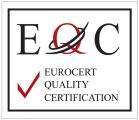In Islam, there are certain rules and teachings known as Halal. These pertain to anything that complies with the rules and principles of this religion. When it comes to food, Halal means that it must meet certain requirements to be suitable for Muslims.
Meat, dairy products, fruits, vegetables, grain products, fish, seafood, nuts and seeds, as well as spices and herbs, can all be considered Halal foods, as long as they meet the relevant requirements. These include the type of ingredients, the method of preparation, and the type of processing.
Halal certification confirms that a product meets Halal standards. This certification process is usually carried out by Muslim organizations and involves a thorough examination of the product’s raw materials, manufacturing processes, and packaging. Regular inspections and monitoring are conducted to ensure that the standards are being met. However, it is important to note that Halal certification is not a guarantee of the quality or health of a product, but only confirms that it meets Halal requirements.
Halal meat refers to meat that has been slaughtered according to Islamic rules. The animal must be slaughtered by a believer by making a cut in its throat. Stunning is allowed but not mandatory, and the animal must not have any injuries.
Although Halal meat is mainly intended for Muslims, it is also purchased by non-Muslims. Therefore, in many countries, there are specialized Halal certification bodies that ensure that the meat meets the relevant requirements.
Further requirements for Halal products:
To be considered a Halal product, animal products must come from animals that were slaughtered according to Islamic regulations. This means that the animal may be stunned before slaughter, but must still be alive and conscious during the slaughter. The slaughter must be performed by a Muslim who knows the Bismillah prayer.
Pork and its derivatives, as well as meat from impure animals such as scavengers or predators, are strictly prohibited. Alcoholic beverages and food containing alcohol are also taboo. Food from animals that were not slaughtered according to Islamic regulations is also not allowed. Blood in any form is also forbidden. Additives and preservatives must come from trustworthy sources and must not contain any prohibited substances.
The requirements may vary depending on local culture and tradition. The Halal certificate is an important proof that all Halal requirements have been met. Manufacturers of Halal products must therefore exercise strict control over raw materials, production, and the production process to ensure that their products comply with Halal regulations.
The Halal certificate serves as a crucial sign that a product complies with Islamic dietary regulations. For Muslim consumers, it is particularly important that they can buy and consume Halal products. The Halal certificate can help them identify such products.
However, the standards and requirements for Halal certification may vary by country and region. Therefore, it is essential for consumers to learn about Halal standards in their region and rely only on certified Halal products.
In Islam, there are certain rules and teachings known as Halal. These pertain to anything that complies with the rules and principles of this religion. When it comes to food, Halal means that it must meet certain requirements to be suitable for Muslims.
Meat, dairy products, fruits, vegetables, grain products, fish, seafood, nuts and seeds, as well as spices and herbs, can all be considered Halal foods, as long as they meet the relevant requirements. These include the type of ingredients, the method of preparation, and the type of processing.
Halal certification confirms that a product meets Halal standards. This certification process is usually carried out by Muslim organizations and involves a thorough examination of the product’s raw materials, manufacturing processes, and packaging. Regular inspections and monitoring are conducted to ensure that the standards are being met. However, it is important to note that Halal certification is not a guarantee of the quality or health of a product, but only confirms that it meets Halal requirements.
Halal meat refers to meat that has been slaughtered according to Islamic rules. The animal must be slaughtered by a believer by making a cut in its throat. Stunning is allowed but not mandatory, and the animal must not have any injuries.
Although Halal meat is mainly intended for Muslims, it is also purchased by non-Muslims. Therefore, in many countries, there are specialized Halal certification bodies that ensure that the meat meets the relevant requirements.
Further requirements for Halal products:
To be considered a Halal product, animal products must come from animals that were slaughtered according to Islamic regulations. This means that the animal may be stunned before slaughter, but must still be alive and conscious during the slaughter. The slaughter must be performed by a Muslim who knows the Bismillah prayer.
Pork and its derivatives, as well as meat from impure animals such as scavengers or predators, are strictly prohibited. Alcoholic beverages and food containing alcohol are also taboo. Food from animals that were not slaughtered according to Islamic regulations is also not allowed. Blood in any form is also forbidden. Additives and preservatives must come from trustworthy sources and must not contain any prohibited substances.
The requirements may vary depending on local culture and tradition. The Halal certificate is an important proof that all Halal requirements have been met. Manufacturers of Halal products must therefore exercise strict control over raw materials, production, and the production process to ensure that their products comply with Halal regulations.
The Halal certificate serves as a crucial sign that a product complies with Islamic dietary regulations. For Muslim consumers, it is particularly important that they can buy and consume Halal products. The Halal certificate can help them identify such products.
However, the standards and requirements for Halal certification may vary by country and region. Therefore, it is essential for consumers to learn about Halal standards in their region and rely only on certified Halal products.


